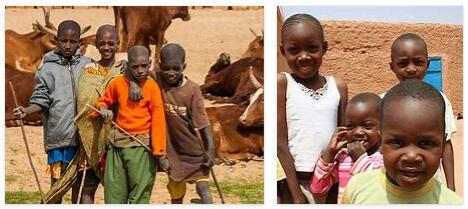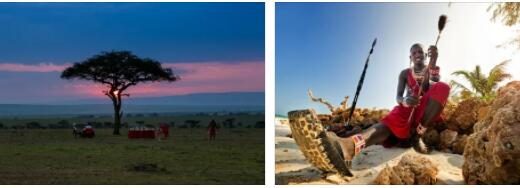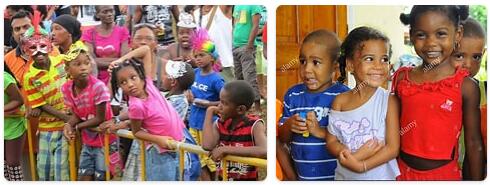Niger 2014
Yearbook 2014
Niger. Niger population in 2020 is estimated at 24,206,655. French nuclear power company Areva had halted the uranium mining in two of its mines in Niger before the New Year, formally for technical reasons. According to the miners’ union, it was negotiation tactics since the Niger government demanded better agreements but had failed after over a year of negotiations. The government hoped to increase the share of uranium mining from the state budget revenue from 5 to 20%.

For four decades, Niger has been one of the world’s largest uranium producers and Areva has grown into one of the world’s largest companies, but Niger is still one of the world’s poorest countries, the government said. Over 60% of the country’s population lives on less than a dollar a day. Aid from the West accounts for close to 40% of the state budget. The country’s tax revenue is the lowest percentage of GDP in West Africa, according to the International Monetary Fund (IMF).
France is dependent on nuclear power for three quarters of its electricity and therefore more dependent on uranium than any other country in the world. But according to the secret agreement leaked to the media, Areva paid no export duties on uranium, no taxes on materials and equipment in the mines and a compensation (royalty) of only 5% on the uranium company produces.
With revenues of SEK 85 billion in 2013, Areva was almost twice the size of Niger’s entire economy, according to the IMF. The company is also Niger’s largest private employer and the largest exporter.
However, the company, which produces one-fifth of the world’s uranium, claimed that higher compensation to Niger would make the business unprofitable as uranium prices fell sharply, not least because of the nuclear accident in Fukushima, Japan.
In February, the uranium mining was resumed, and in May after two years of negotiations, a new agreement between the government and Areva on uranium mining was concluded for another ten years. Areva agreed to a reduced tax rebate and increased royalty to 12%. The company promised to pay for road construction, invest in local development projects and appoint Nigerians to managers at two of Areva’s mines in the country.
After major protests against President Mahamadou Issoufou before the New Year, thousands of people at the beginning of the year went out in the capital Niamey to support the president. They represented a coalition of 36 parties. The government blamed opposition leader Hama Amadou for calling for a coup and stirring up ethnic hatred. Several journalists and leaders from civil movements were arrested with similar charges.
Amadou, who is the Speaker of Parliament and leader of the Mod (Nigerian Democratic Movement), left the ruling coalition last year and founded the new opposition movement Alliance for the Republic, Democracy and Reconciliation in Niger. That led to increased political conflict rather than reconciliation, and Amadou was considered the biggest threat to Issoufou ahead of the 2016 presidential election.
In May, around 40 opposition activists were arrested after firing at the Vice President’s home and bombing attacks on the ruling party’s headquarters. Six prominent politicians and officials with ties to Amadou were indicted for violations of state security and revival. According to Amadou, it was an attempt to silence the opposition. Thousands of people protested in the capital demanding that the defendants be released.
According to topb2bwebsites, kidnappings and violence by armed Islamists occurred in the north, and in the south, the Nigerian Islamist movement Boko Haram also appeared within the Nigerian border. According to the military, Boko Haram wants revenge for Niger taking part in the fight against Islamists in the region. Thousands of refugees, including armed insurgents, have crossed the poorly guarded border from Nigeria to Niger.
During the year, a force of 700 soldiers from Niger, Nigeria, Chad and Cameroon was decided to fight Boko Haram across the borders of the Sahel region. French and American drones for scouting have their bases in Niger.
In May, hundreds of upset students in Niamey protested that they had not received their tuition. The protest went into looting, and the police used tear gas and batons to disperse the protesters. Many were injured and about 20 were arrested.
In August, the leaders of the parties in Parliament gave the go-ahead to the police to arrest President Hama Amadou, who was accused of involvement in a tangle of trafficking in infants born in neighboring Nigeria. Amadou was arrested in his absence. Earlier, one of Amadou’s wives had been among 17 people arrested with the same charges.
The year before, the police had revealed how young women were forced to give birth to children who were then sold to childless couples. The Minister of Agriculture was also arrested on suspicion of being included in the network. Amadou claimed that the investigation was politically motivated. His party friends saw the arrest decision as a violation of the Constitution, since parliamentary immunity can only be revoked when the entire parliament is assembled. Amadou appealed to the Constitutional Court.


